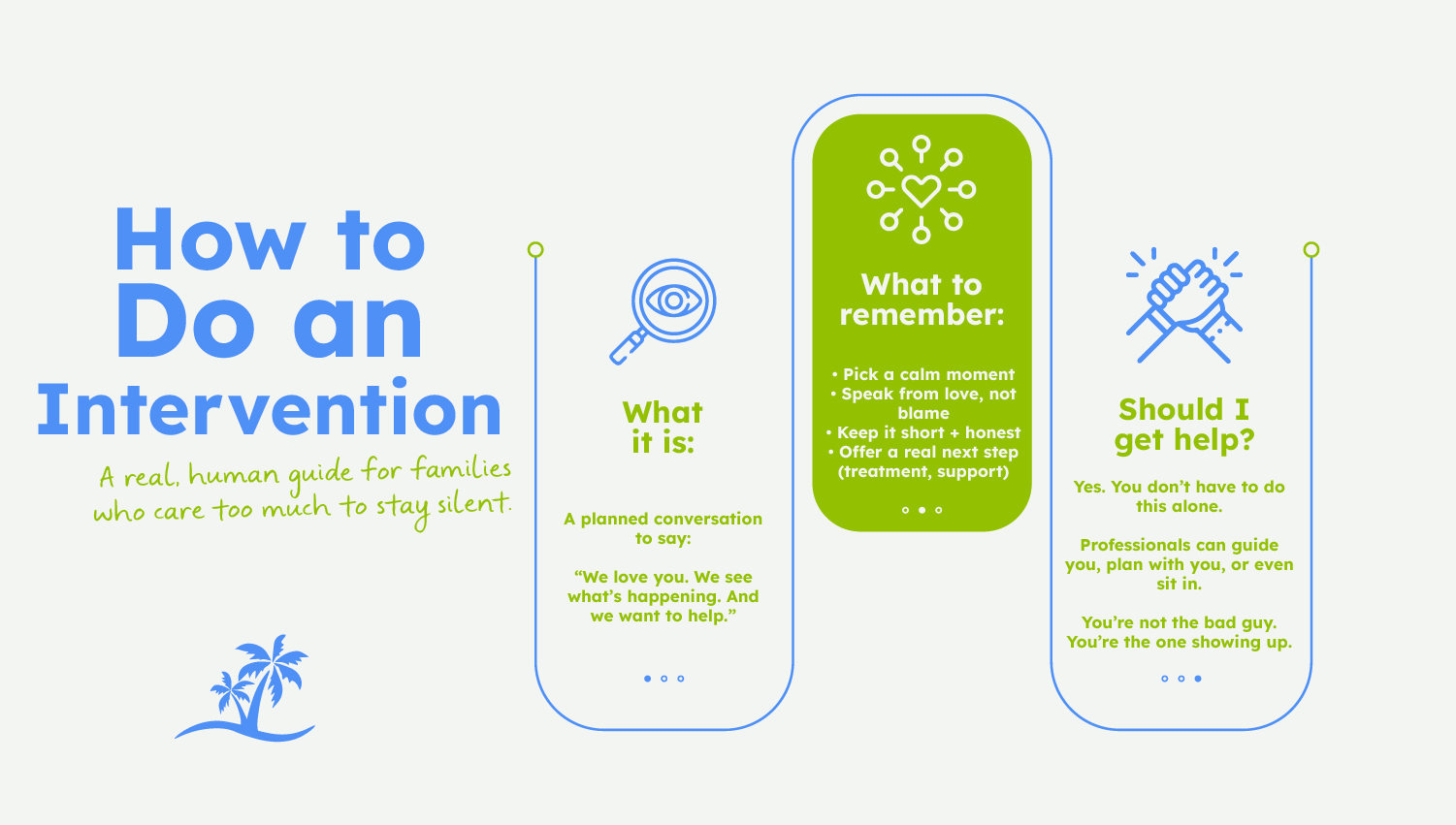How To Do an Intervention When You’re Scared to Say Something
Something…
You’ve probably rehearsed the words in your head a dozen times. Maybe more.
“I love you… I’m worried… You need help.”
But you freeze. Because what if they get angry? What if they walk out? What if this just makes it worse?
If someone you love is using and you feel like you’re losing them to it, you might be wondering what else you can do. When gentle hints haven’t helped and silence is eating at you, it might be time to ask yourself how to do an intervention.
This is for the people who’ve had enough sleepless nights. Those who love someone caught in something they can’t control. Those who still have hope—just not a clear way forward.
What an Addiction Intervention Is (And Isn’t)
An intervention isn’t a punishment. It’s not a trap or a “gotcha” moment.
It’s an act of love—delivered when the truth has gone unheard too many times.
It’s a way to say: “We see what’s happening. And we can’t stay silent anymore. We care too much.”
Whether it’s a drug intervention or alcohol intervention, the goal isn’t to force someone into change. It’s to open the door—to say, “There is help. And we’ll walk with you if you’re willing.”
Do Interventions Work?
People ask a lot: “How To Do An Intervention?”, “Do Interventions Work?”
And honestly? Sometimes yes. Sometimes no. Sometimes not right away.
But here’s what we know: silence rarely works either. Waiting often means watching things get worse. And even if they’re not ready now, your words might echo later—right when they need it most.
The power of an intervention is not in control. It’s in clarity.
How to Do an Intervention (Step by Step, But Real)
You don’t have to follow a script. But here are things that help:
- Gather people who care.
Not a crowd—just a few people who matter to them. Everyone should speak from care, not blame.
- Plan ahead.
This isn’t a conversation to wing. Think about what you want to say. Keep it short, real, and personal.
- Choose the right moment.
When they’re calm. Sober, if possible. Avoid times of chaos or crisis. A quiet day is better than a dramatic one.
- Stay steady.
They might get defensive. That’s normal. Don’t argue. Don’t beg. Just hold the line: “We love you, and we want to help.”
- Offer something real.
It helps to have a plan ready—a drug intervention program, a rehab option, even just a call they can make today. Vague promises rarely land.
Real support makes all the difference.

Should You Ask for Professional Help?
Absolutely—if it feels like too much to handle alone. Or if the situation has gotten dangerous. Or if you’ve tried before and it didn’t go well.
At The Palms Recovery, we help guide families through this. Sometimes we’re in the room with you. Sometimes we help behind the scenes. Either way, you’re not doing it alone.
You Might Feel Like the Bad Guy. You’re Not.
It’s okay if you’re unsure about how to do an intervention. If your voice shakes. If you cry. If you leave the room and come back.
This is hard. You’re trying to hold a door open for someone who’s been walking in the dark for a long time. That takes guts. And love. And so much patience.
They might not say thank you. Not right away. But one day, they might look back and realize: You didn’t give up on them—even when they did.
Need Someone to Walk Through This With You?
If you’re facing this moment and need help—making a plan, finding words, or choosing the next step—we’re here. At The Palms Recovery, we’ve supported families through hundreds of interventions, and we know every story is different. Would you like to share your story with us so we can help you?


